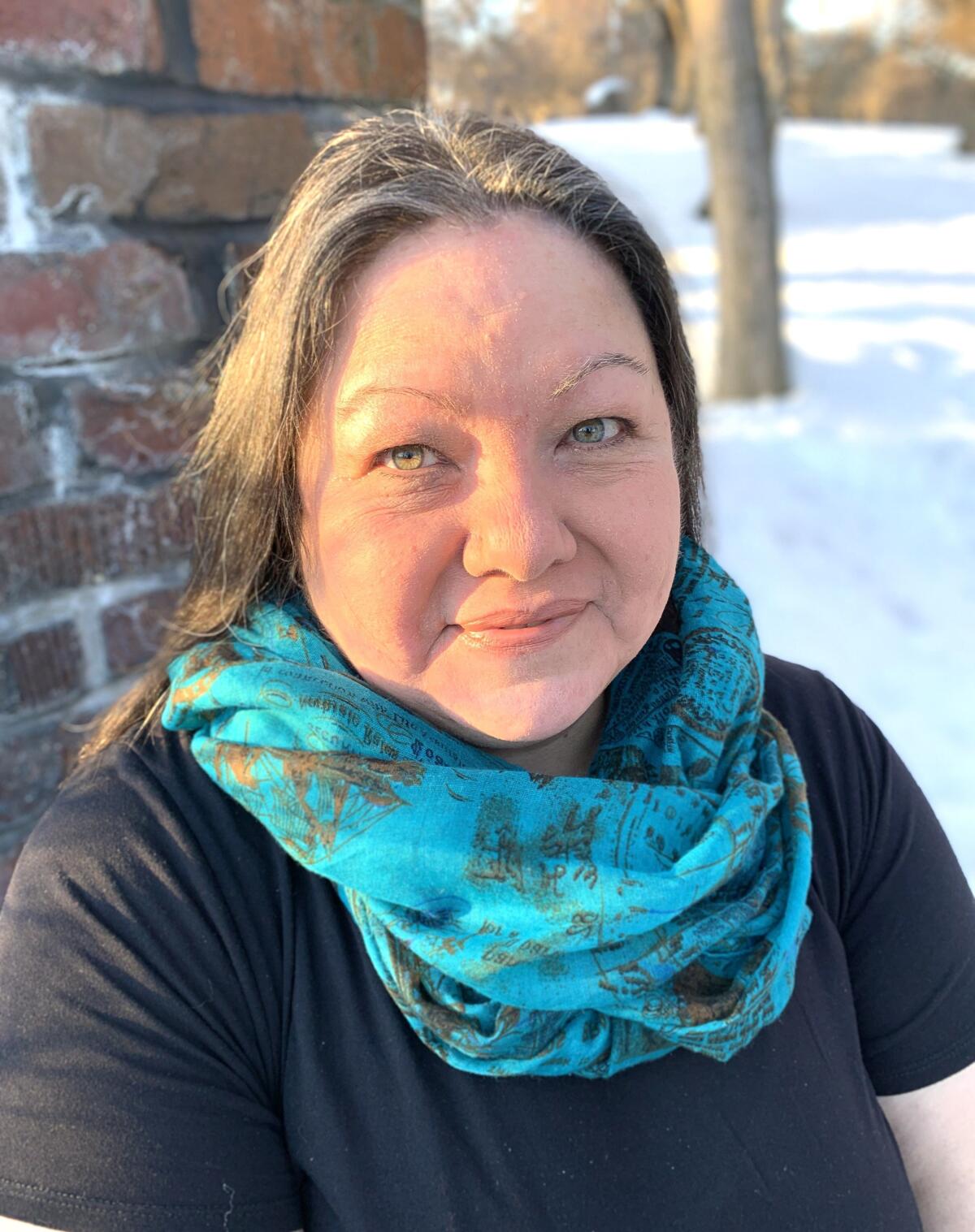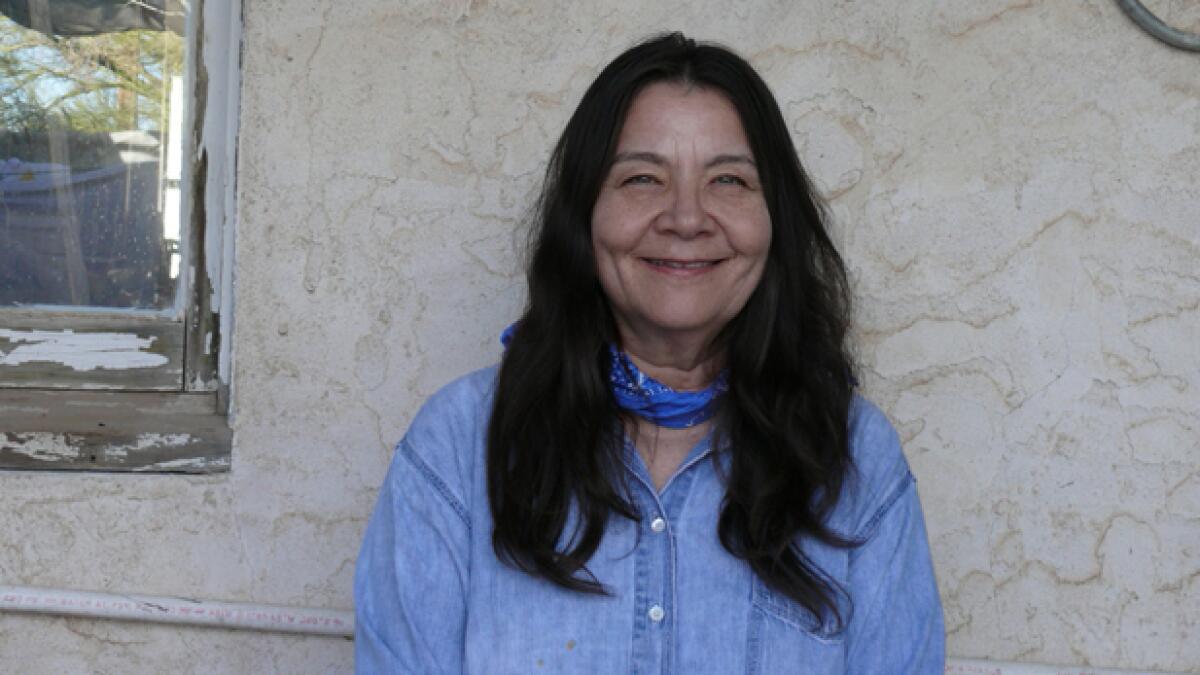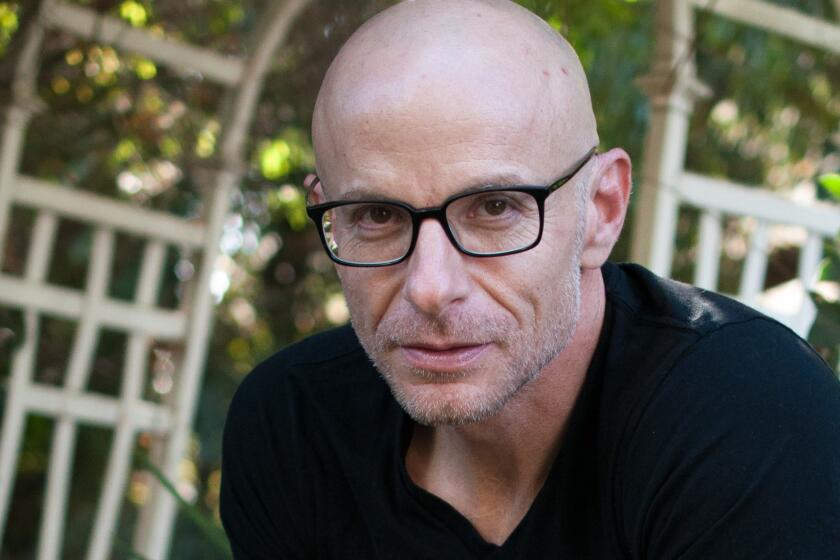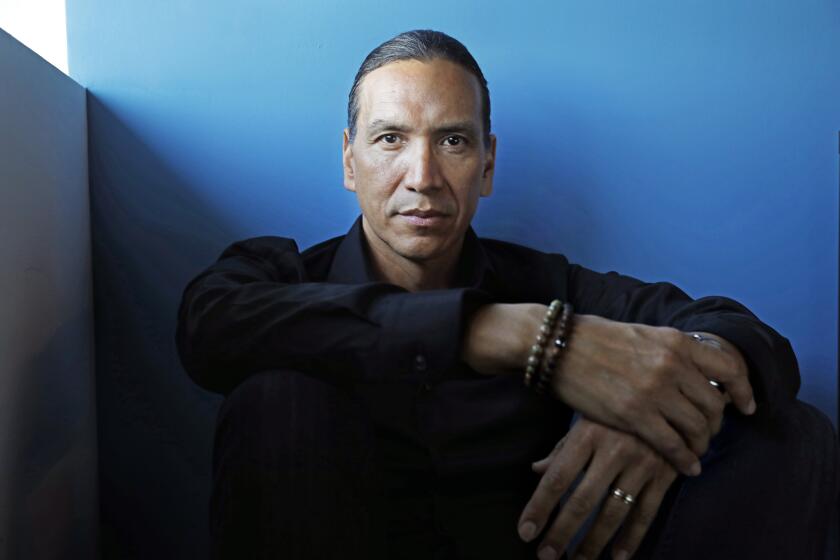David Treuer on five Indigenous authors you should read right now

Last month, Pantheon Books, an imprint of Knopf Doubleday Publishing Group, announced that author David Treuer would become an editor-at-large, acquiring and editing two fiction and nonfiction books a year with a focus on Native writers and emerging voices.
“It’s such a privilege to have this opportunity to help literature generally and Native writers and Native books in particular,” Treuer told The Times during a recent conversation. Below, the author of “The Heartbeat of Wounded Knee,” among other acclaimed works, recommends five authors — young and long-established, celebrated and not-yet-published that should be read immediately.

If you buy books linked on our site, The Times may earn a commission from Bookshop.org, whose fees support independent bookstores.
“It’s not like we’re underrepresented, we’re not represented,” says Ojibwe author David Treuer, who is joining Pantheon to edit emerging writers.
…
Dennis Staples
(Ojibwe)

In “This Town Sleeps” (2020), Staples has written one of the strangest novels I’ve read in a long time: It’s eerie and dark and darkly comic. It’s got great heart and range.
…
Sterling HolyWhiteMountain
(Blackfeet)

HolyWhiteMountain is from East Glacier, Mont. He’s published two incredible, formally challenging, immensely readable short stories. “Featherweight” was published in the New Yorker in the spring, and “This Then Is a Song, We Are Singing” was just published in the Paris Review.
…
David Heska Wanbli Weiden talks about the motivations and the deeply embedded social and legal problems behind his potboiler “Winter Counts.”
Tiffany Midge
(Standing Rock Hunkpapa Lakota)

Midge is a hilarious satirical essayist and nonfiction writer, and her work brings all the laughs. But they are “thinky” laughs, because the humor doubles back on itself and makes you see so much about modern Native American life in a new way. Much of this work is collected in her book, “Bury My Heart at Chuck E. Cheese’s” (2019).
…
James Welch
(Blackfeet)

Welch, who died in 2003, is to my mind the very best Native writer in the last 200 years. He wrote poetry, nonfiction and fiction. His fiction, though, is where he really shone. “Winter in the Blood” (1974), “The Death of Jim Loney” (1979) and “Fools Crow” (1986) are all masterpieces. What is wonderful about Welch’s work is that he was trying something new — stylistically, thematically — every time he started a new project. Not all his books “worked,” but he was the most ambitious and experimental of our writers. I am on the lookout for the next Welch.
…
Leslie Marmon Silko
(Laguna Pueblo)

Silko, who won the L.A. Times’ 2020 Robert Kirsch Award for lifetime achievement, has written one of the foundational texts of modern Native literature: “Ceremony” (1977). But it’s Silko’s 1992 apocalyptical novel, “Almanac of the Dead,” that impresses me the most. Silko wrote the Native apocalypse novel. It spans centuries and straddles borders; I can think of no other book that has such a wide and strange embrace of our modern times. And I am very keen to discover new writers for Pantheon in this same vein.
Michael Greyeyes (‘Rutherford Falls’) and Devery Jacobs (‘Reservation Dogs’) look back on a milestone year for Indigenous representation on screen.
More to Read
Sign up for our Book Club newsletter
Get the latest news, events and more from the Los Angeles Times Book Club, and help us get L.A. reading and talking.
You may occasionally receive promotional content from the Los Angeles Times.







